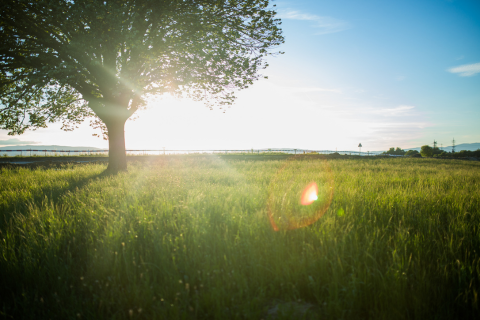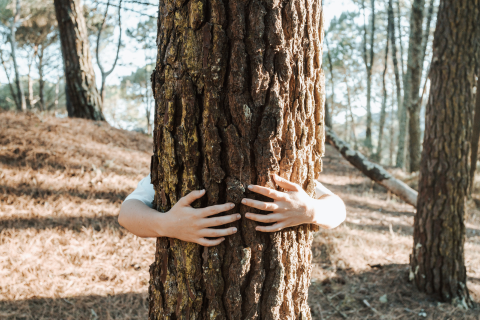In a recent study in Science Advances, researchers systematically reviewed 300 academic papers that studied links between people’s well-being and the amount of time they spent in nature. The authors consider aspects of individual human well-being like mental and physical health, connectedness and belonging, spirituality, and more. They also look at more structural variables like recreation and tourism more broadly.
They categorize four general “channels of interaction” between a person’s well-being and nature: form, cultural practices, intellectual practices, and spiritual practices. Form is considered direct contact or immersion in the natural world; this is probably what most of us automatically think of when we think about spending time in nature. Dipping our toes in the river would count as an interaction with nature’s ‘form’. Cultural practices are defined as norms that encourage interaction with nature, like farming. I experience these norms regularly as a Vermont resident! Things that involve learning in nature are intellectual practices. I remember bringing my children to wildlife tracking activities where they would learn about different animals in the area and how to identify them by their tracks in the snow, for example. Spiritual practices are situations in the natural world that facilitate religious or spiritual endeavors. My children will be the first to tell you that they both loved and hated being dragged out of bed to listen to some inspiring words at an outside service set against the sunrise.
 There are so many results of this study that it’s almost entirely futile to try to summarize them (check out the paper if you’re interested in the details!) But a few of the researchers’ findings were:
There are so many results of this study that it’s almost entirely futile to try to summarize them (check out the paper if you’re interested in the details!) But a few of the researchers’ findings were:
- Spending time in nature may help people feel a reduction in stress and ‘regenerate’ in a healthy way, potentially helping to increase relaxation and tranquility and recover from sickness.
- People may feel increased connectedness with others through interactions with nature such as hiking and camping, which can increase healthy social behaviors.
- Children in particular may benefit from nature-based recreation as it can equip them with knowledge and skills about the world.
Overall, the researchers suggest there are an overwhelming number of ways that spending time in nature might be linked to higher well-being for both individuals and communities. Returning to the Washington Post article on the study, they also report the study has been widely well-received by the scientific community:
“In one scenario, elements of this work could ultimately be included in the Diagnostic and Statistical Manual of Mental Disorders, said Elizabeth Haase, chair of the American Psychiatric Association’s Committee on Climate Change and Mental Health.
‘That sets us up to be able to say that when we facilitate this kind of interaction with nature, you see this kind of benefit, and then prescribe these kinds of natural experiences, or have policies that say that you’re really depriving someone of their mental health if you destroy these natural landscapes,’ she said.”
So while you’re thinking about your health and wellness goals, how might you increase your interactions with nature? If you’re going through a particularly turbulent transition at home or you feel maxed out by all you have to think about, are there any ways you can inject some interaction with nature? Maybe consider the four channels delineated above: form, cultural, intellectual, or spiritual practices. Is there anything you can add in? Give it a try!
